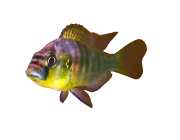Teaching

BIO 390D Fundamentals of Integrative Animal Behavior
(every spring semester, co-taught with Dr. Molly Cummings or Dr. Mike Ryan)
This is an advanced graduate course on the fundamental principles of integrative animal behavior. The approach to this course is to consider both proximate and ultimate mechanisms of behavior; that is, how behavior works and how it evolves. Instead of addressing proximate and ultimate issues separately, we attempt to integrate them and illustrate how such integration is important to deeply understand why animals behave the way they do.
Neural Systems and Behavior summer course at the Marine Biological Laboratory
The Neural Systems & Behavior (NS&B) course at the Marine Biological Laboratory (MBL) in Woods Hole (Mass.) was co-directed by André Fenton and Hans Hofmann from 2012 through 2018. This intensive eight-week lecture and laboratory course focusing on the neural basis of behavior is intended for graduate students, postdoctoral researchers, and independent investigators. Students investigate neural systems at the molecular, cellular, and organismal levels using state-of-the-art techniques and several different experimental model systems. The list of experimental model systems is updated year-to-year but always includes a diverse array of vertebrate and invertebrate preparations, chosen to illustrate key concepts and novel techniques. These experimental techniques are taught by a team of leading experts on a wide range of topics including: sensory processing and feature detection, sensory-motor integration, the cellular basis of pattern generation, the development and neuromodulatory control of cell and circuit specificity, spatial memory, learning and plasticity, and social communication. The laboratory provides access to many complementary methods including intracellular recording, single-cell dye-injection, patch-clamp, whole-cell voltage and current clamp, analysis of synaptic transmission and plasticity, neural genetics, quantitative behavioral methods, and computational neurobiology.
After learning new techniques, students design, perform, and analyze the results of their own project. These projects offer an exceptional opportunity to combine newly learned skills in a creative manner. In addition to daily lectures given by course faculty, NS&B also sponsors the MBL Wednesday night seminar series, given by invited lecturers and distinguished visiting scholars.
BIO 382K Introduction to Biology for Data Science
(every spring)
This graduate course covers biological concepts and methods (including its assumptions and limitations), particularly in the areas of systems biology, medical and evolutionary genomics, and neuroscience, with an emphasis on those approaches that produce a lot of data but are analysis-challenged. We will also look at the conceptual foundations and historical roots of various research programs in theoretical and computational biology. This course is aimed at graduate students in the quantitative sciences (e.g., computer science, mathematics, physics, chemistry, and statistics), engineering, and the life sciences.
BIO 384K / NEU 385L Biological Foundations of Decision Making
(currently not offered)
How do we make these decisions? Why do we make them the way we do? This graduate seminar on the biological underpinnings of how we make decisions was offered in the Fall of 2009 and 2013. The seminar explores the mechanisms biological organisms use to make decisions and how these mechanisms evolved. We first attempt to define a conceptual framework for decision-making that can be applied across levels of biological organization. Then, we survey current research on how animals make decisions using genetic, neurobiological and evolutionary approaches.
BIO 361T Comparative Animal Physiology
(Spring 2022)
Comparative Animal Physiology is an exciting and broad field of biological science. Situated within an evolutionary framework, it integrates information across many levels of biological organization and has experienced dramatic growth in several areas including neurophysiology and molecular processes in recent years. This upper division course has been offered every spring semester from 2006 through 2011, and teaches students about molecular, cellular, endocrine and systems-level mechanisms that allow diverse animals to function in the face of environmental change and in interactions with other individuals. We discuss the important concepts that drive our understanding of organismic function and illustrate them with examples that in many cases will relate to our own life experiences.

